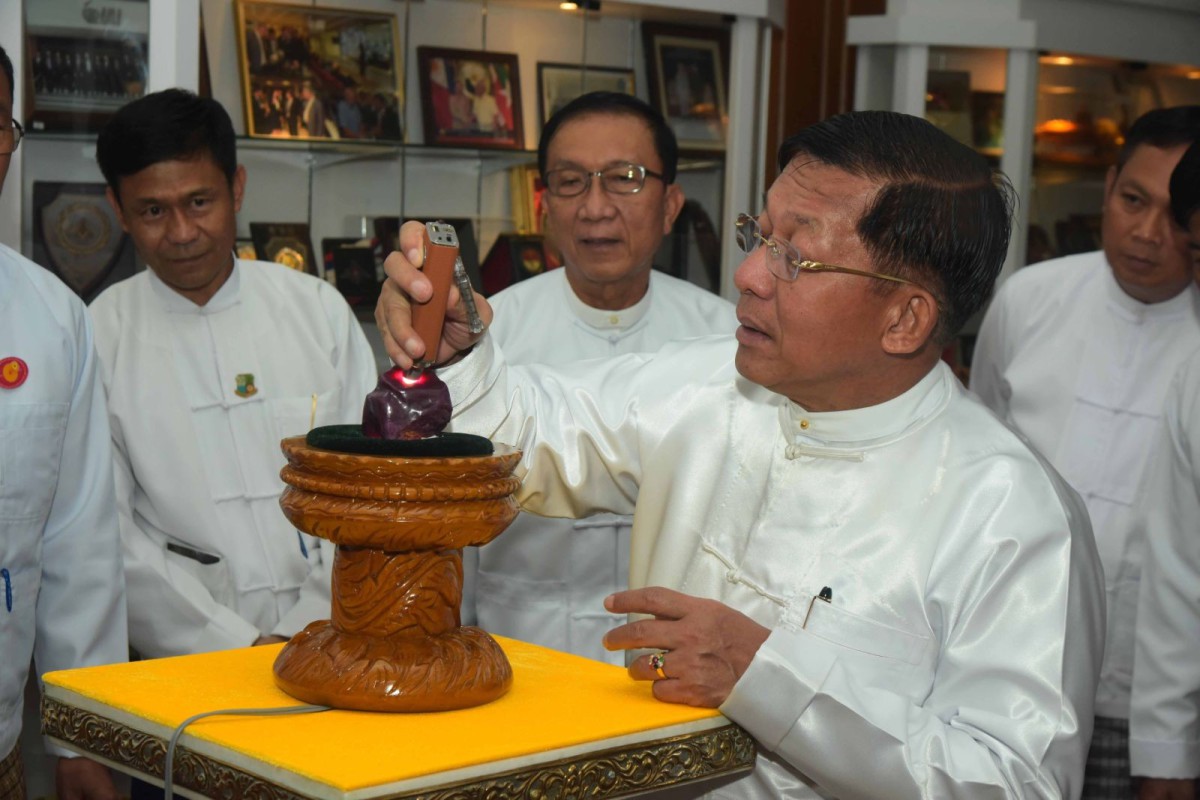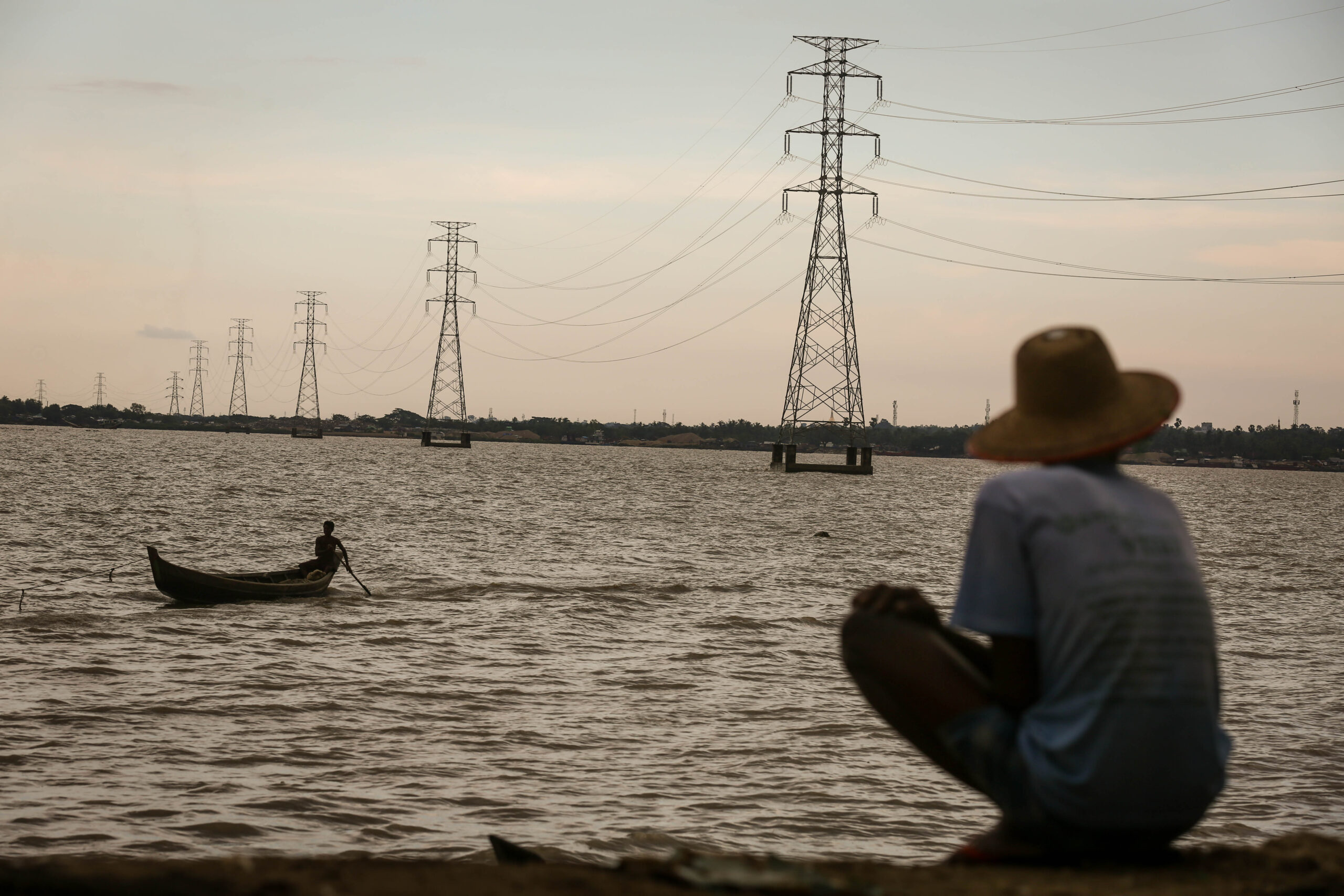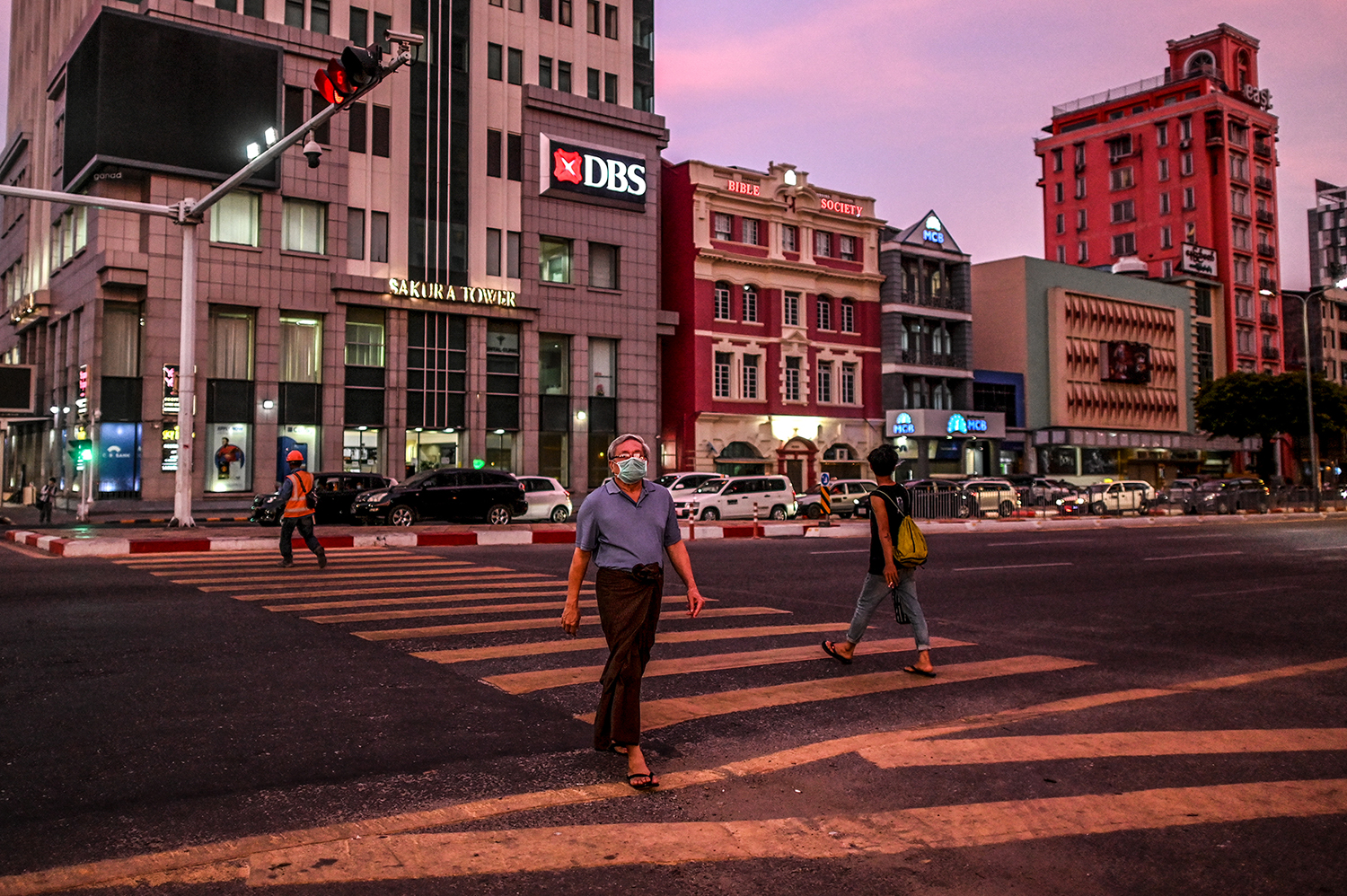Spendthrift boss tells subordinates to tighten belts
Min Aung Hlaing has again urged his regime’s ministries to tighten their belts while he himself spends recklessly. Instead of investing in things that would deliver practical benefits to the country—and which might even win him some popular support—the junta boss has been busy squandering public funds on vanity projects.
He is having a giant Buddha statue—touted as the world’s biggest sitting Buddha image—built in Naypyitaw, not to mention holding lavish feasts for and presenting offertories to Buddhist monks, in a bid to portray himself as the great promoter of Buddhism. The junta chief has also spent billions to confer hollow titles on individuals, including military supporters, after showering athletes who won medals at the SEA Games with large cash awards.
At his regime’s cabinet meeting on Tuesday however, Min Aung Hlaing repeated his call for an economy drive and a healthy balance sheet, and demanded that state-owned enterprises stay in the black.
Min Aung Hlaing has also urged the public to consume less fuel, cooking oil, rice, electricity and water. Well, it shouldn’t be too hard for Myanmar people to save energy, at least, as the regime is helping them with frequent blackouts.
Junta soldiers haven’t been spared Min Aung Hlaing’s economic lectures, either. Whenever he visits battalions, he always urges personnel to spend within their means.
Meanwhile, he is preparing to celebrate Myanmar’s 75th Independence Day, which falls on Jan. 4, on a scale even grander than the 75th annual Union Day celebration, for which he squandered billions of kyats.
Min Aung Hlaing is saying one thing and doing another. And what a pity he thinks those vanity projects will make him the true head of state of Myanmar!
Lawlessness on the rise

“If there is no security, well-off people will have to do the night watch bearing their belongings,” was what Min Aung Hlaing told his junta ministers at the same cabinet meeting on Tuesday as he highlighted the importance of law and order, and rule of law. Apparently, he is not aware of just how lawless Myanmar has become since the coup.
High unemployment and the rising cost of living have led to a crime wave ranging from bank heists and fatal robberies to thefts and muggings committed blatantly in broad daylight in cities including the commercial capital, Yangon.
Aren’t there police to handle those crimes? Yes, there are. But they have been busy working together with junta soldiers to mount crackdowns on opponents of the regime—in other words, helping to strengthen the military dictatorship—so they have no time for law enforcement. The rising crime wave bears testimony to the fact that the people can’t fill in for the police and do their job for them.
One day after Min Aung Hlaing stressed the importance of rule of law, a building materials shop in downtown Yangon was robbed, and the owner had to be hospitalized. Earlier this week, an 80-year-old physicist and his wife were killed at their house in an armed robbery in Mingalar Taungnyunt, in Yangon’s downtown.
Ministry goes all out to spare general’s blushes

The junta’s Electricity Ministry doesn’t seem particularly concerned about Myanmar people living in the dark, but it dreads causing Min Aung Hlaing to lose face should he himself be hit by a power outage in public.
Therefore, the ministry mounted a special operation to ensure a constant power supply as Min Aung Hlaing offered Kathina robes to Buddhist monks in Naypyitaw on Wednesday.
On Oct. 30, a team led by Deputy Electricity Minister Dr. Aung Zeya drove to Uppatasanti Pagoda, the venue for the regime’s Kathina robe-offering ceremony. He instructed ministry staff to monitor the electricity supply to the venue continuously, and to report to him immediately in case of any problem.
He also instructed them to make sure the transformer, control panel, backup power lines and diesel generators were working properly, and to have backup generators and other equipment ready. Going to extremes, the deputy minister even ordered his staff to make sure USPs and power banks were in good condition and ready to be used on the occasion.
The fact that ministerial-level officials have to personally get involved to ensure that a ceremony attended by their boss can be held without a blackout indicates how bad the situation has become.
Myanmar has been plagued by blackouts since late last year, in the wake of the coup. The regime promised that the electricity supply would return to normal in May, but blackouts are still common. As hydropower is the main source of electricity in Myanmar, and November marks the end of the rainy season, Myanmar people are bound to face further serious blackouts in the months to come.
Rules tightened on civil society organizations

Junta chief Min Aung Hlaing on Oct. 28 signed a new Organization Registration Law into effect, targeting the popular resistance movement.
The new law replaces a similar law enacted in 2014 under President U Thein Sein’s administration, making it compulsory for organizations to register, while approval is subject to relevant ministries.
The law prohibits organizations from supporting or otherwise having direct or indirect links with groups and individuals that the regime has labeled terrorists or that actively oppose the regime, as well as with unlawful associations and their members.
What’s worse, the broadly defined Article 39 carries jail sentences of up to five years for any act deemed to harm, either directly or indirectly, the sovereignty of the country, rule of law, national security and national solidarity.
The law will govern the operations of civil society organizations and international non-governmental organizations operating in Myanmar. It also increases registration fees, at a time when many charities are being forced to limit their operations due to high fuel prices.
Since the coup, the regime has tightened its restrictions on media, printing and publishing, and films, and is now targeting civil society organizations.

















